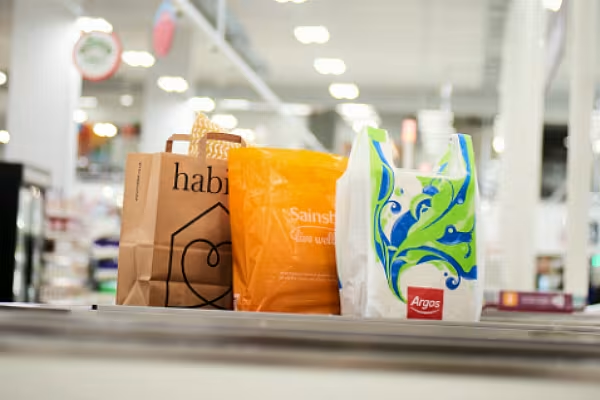Sainsbury's posted a strong set of third-quarter results today, with grocery sales increasing by 2.3% over the Christmas trading period.
When it comes to general merchandise, however, the jury is still out as to whether the UK's second-biggest grocer has the capacity to succeed.
Sales in Sainsbury's GM division, which includes the Argos and Habitat brands, dropped by 1.4% in the most recent quarter, leading analysts to question whether this business has become a burden to the supermarket chain.
"General merchandise and clothing are dragging down growth," said Bruno Monteyne of Bernstein Research. "Time will soon tell whether this is the start of consumers tightening belts or temporary factors."
Sainsbury's, as you would expect, put a positive spin on these results in its trading update, highlighting the unit's recent growth in market share and online sales.
It added that Argos stores in their second year of trading delivered average sales growth of 15%, while those in their third year were up by over 30%.
“General merchandise and clothing grew market share in a challenging market," said Sainsbury's CEO Mike Coupe. "Argos stores in Sainsbury’s supermarkets performed particularly well and Argos saw record sales across the Black Friday period."
Expansion
Sainsbury's acquired Home Retail Group, the owner of Argos and Habitat, for £1.4 billion in September 2016, and began installing new concession stores in its supermarkets.
In spite of the recent decline in sales, Sainsbury's says that it is continuing to roll-out these concessions this year, showing the supermarket chain's confidence in the retail concept.
The group opened 52 new Argos stores in Sainsbury's supermarkets during the third quarter of the year, bringing its total to 164, but it expects to end its 2017/2018 financial year with a total of 185.
Additionally, it opened four new Mini Habitat concessions in October, bringing its total to 15. Sainsbury's said that the new in-store outlets addressed feedback from trials earlier in the year, refining its product range and services to what customers want on a 'weekly shop' basis.
The retailer has also introduced 204 digital collection points in its supermarkets, where customers can collect Argos, eBay and Tu clothing orders.
In line with these expansion plans, Sainsbury's said today that it expects to deliver £160 million of EBITDA synergies from the Argos acquisition by March 2019.
Competition
The purchase of Home Retail Group put Sainsbury's in direct competition with Amazon, having a range of product categories under one roof. But has this move stretched the supermarket operator too thin?
Christmas trading figures from the British Retail Consortium highlight the difference in performance between the grocery and non-food retail sectors in recent months. As food-price inflation has grown, so have the value of grocery sales, leading consumers to have less disposable income for discretionary spending, causing non-food sales to decline.
This situation is reflective of Sainsbury's recent performance, and suggests that its fortunes could change as the wider retail sector improves.
But, for now, Sainsbury's seems to be remaining positive about its GM prospects, and while there are those that suggest that the retailer may have bitten off more than it can chew, many analysts are optimistic about its future chances.
"General merchandise remains the wildcard and sales there are still slipping at a concerning rate as Argos goes toe-to-toe with Amazon," said Fiona Cincotta of City Index. "But a healthy rise in grocery sales has more than taken up the slack. Crucially, Sainsbury's is executing its merger with Argos extremely well, allowing it to surprise the market with a profit upgrade."
All eyes will be on the group's full year financial results, released in May.
© 2018 European Supermarket Magazine – your source for the latest retail news. Article by Sarah Harford. Click subscribe to sign up to ESM: The European Supermarket Magazine.














